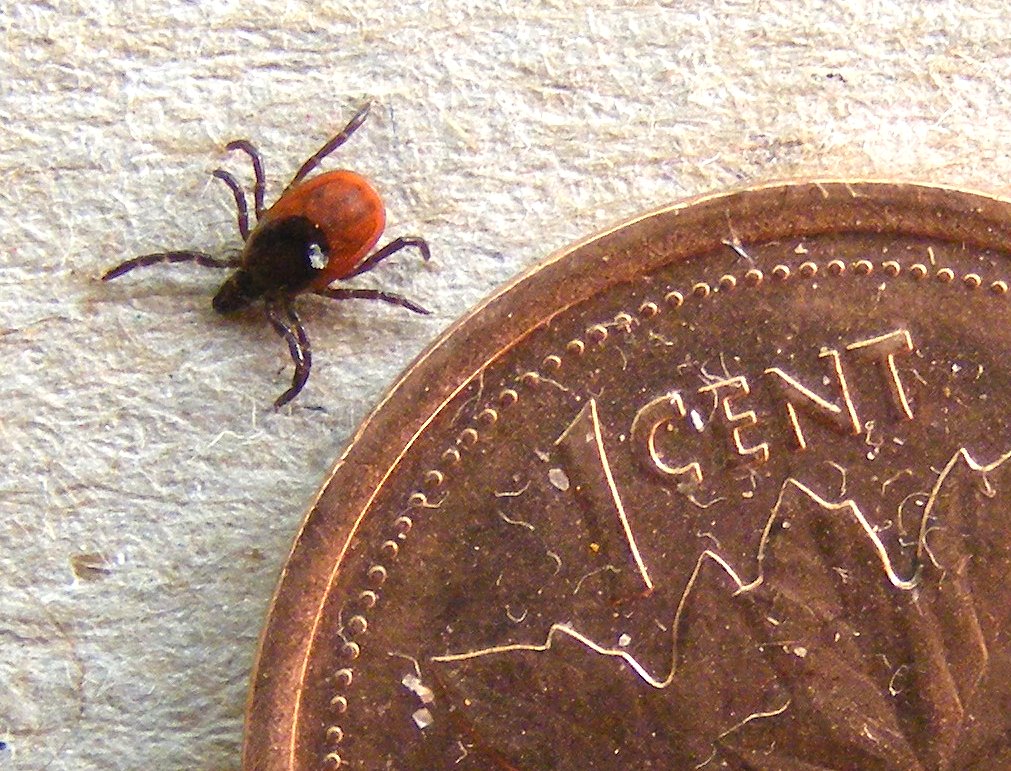 Ixodes Scapularis aka Deer Ticks, Blacklegged Ticks
Ixodes Scapularis aka Deer Ticks, Blacklegged Ticks
The population of Deer Ticks seems to be exploding this year.
Be careful out there!
Because I live in a rural area I have been aware of the risk of encountering deer ticks and have always taken the recommended advice on how to avoid them. I wear long sleeves and pants tucked into socks when walking in long grass or wooded areas. Until this year I had only seen one tick.
I have had 4 encounters already this year and none of them have been in long grass or woods. All have been just on my lawn and flower garden. The first was very early in spring when it was still cold enough to wear snow pants. After doing a bit of raking on my lawn I found a tick on my knee when I was changing my clothes. Second encounter was a bit later when I found a tick on my gloved hand. Encounter three was a friend who stopped for a brief driveway visit, took a walk around the yard and found a tick on his back.
The fourth encounter was a little more serious. Even though I thought I had done a careful body check I found a tick on my back one morning. It was firmly attached and my husband was unable to remove it totally with tweezers. Off to NHH Emerg to have a nurse practitioner remove it. She advised I had been the second patient that morning to come in for tick removal. Although they are seeing an increased number of patients with tick concerns she said the incidence of Lyme disease in Northumberland County is low.
There is a lot of information on the internet about ticks but two good resources are www.publichealthontario.ca and our own HealthUnit http://www.hkpr.on.ca
For me I now come in after gardening, change all of my clothes and do a careful body check. The little devils will get on your clothing and wander around until they find bare skin.
A few interesting facts I discovered:
Nymphs can be as small as a poppy seed.
They can live indoors up to 24 hours.
They overwinter and can be found on evergreen boughs we cut for outdoor arrangements.
They don’t drown when you take a bath and can survive being laundered in cold water. A hot dryer will kill them.
Ants, spiders, and birds are natural predators but they tend to be ineffective at reducing tick population.
Authored by Joy Cullen, Northumberland Master Gardener
